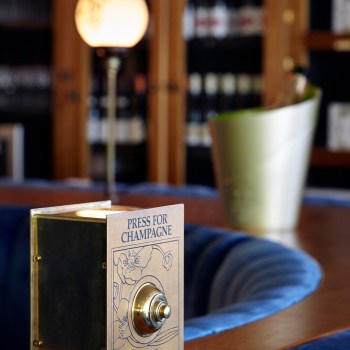By Andy Young
Hospitality industry groups have joined together in South Australia to call for a “draconian” proposal to breath test and drug test staff in bars, hotels and restaurants to be withdrawn.
The Australian Hotels Association SA, Clubs SA, SA Wine Industry Association, Clubs SA and Restaurant and Catering SA wrote a joint letter to MPs calling on the proposal, which was put forward by SA Police (SAPOL) to be withdrawn from the state’s review of its Liquor Licensing Act.
In its submission to the Liquor Licensing Act review SAPOL called for random drug and alcohol testing of hospitality and wine workers to be introduced, with a zero-tolerance policy on staff test results. In addition it called for police to have the power to require bar staff to carry out a test and that it become an offense to resist testing, the industry groups have criticised the proposals as unjustified.
In the letter, a copy of which has been obtained by TheShout, the industry groups said: “The State’s five Industry Associations representing Hotels, Hospitality, Independent Bottle shops, Bars, Late Night Entertainment Venues, Restaurants, Cafes, Caterers, Licensed Community Clubs, sporting facilities and the Wine Industry including cellar doors are unified in their opposition to the SAPOL ambition to have the legal capacity to randomly alcohol and drug test workers involved with the sale and supply of alcoholic beverages.
“While not condoning any employee working while intoxicated, the Associations are fundamentally opposed to this proposal.”
The group went on to say: “The SAPOL recommends a zero BAC. The Associations have seen absolutely no justification for this test and even less for a setting any BAC whether zero, .05 or some other figure. Such limits relate to operating a motor vehicle – nothing else.
“It would seem overkill to impose this type of condition on a lone publican who wants to have a quiet drink with a patron, or a wine maker conducting tastings at their cellar door or a bottle shop manager sampling product as part of selecting new stock.”
The group was also critical at the lack of evidence provided by SAPOL to justify calling for such a measure to be introduced.
They added: “Naturally the Associations have assumed that there must be significant and compelling evidence to support such a draconian measure targeted at the Hospitality and Wine Industry. The release of the SAPOL submission to the T. Anderson QC Review of December 2015 and suppressed for 14 months proves to be woefully inadequate and offers no evidence other than ‘anecdotal information’.
“The SAPOL submission offers no statistical or forensic analysis of available data. In fact no data is offered.”
The group also pointed out that SAPOL does not currently have the capacity to check its own police force adding that no other groups including pharmacists and GPS, Magistrates, Judges or Politicians are required to submit to police breath-testing. “It is ludicrous that the ‘wine state’ could find itself in a situation where a winemaker conducting tastings or a sales person trying to make a deal with international purchasers could not share a drink with their customers.
“This heavy handed approach would place significant burden on South Australian business without any evidence it addresses an existing problem or would benefit the community in any way.
“The Associations that represent in excess of 4,500 liquor retailer businesses who employ many tens of thousands of South Australians reject completely the proposed imposition that has no statistical or evidentiary basis.”
The review of South Australia’s liquor licensing laws has been carried out by retired judge Tim Anderson QC, who has submitted his review with 129 recommendations to the State Government, draft legislation is expected to soon, but the CEO of AHA SA, Ian Horne told TheShout: “It’s not just pubs, it’s not just nightclubs, this gives police the power to randomly breath test any Responsible Person in any licensed premises, if it gets through and clearly it is our intention to make it doesn’t get through.”
He added: “It a scary concept.”



